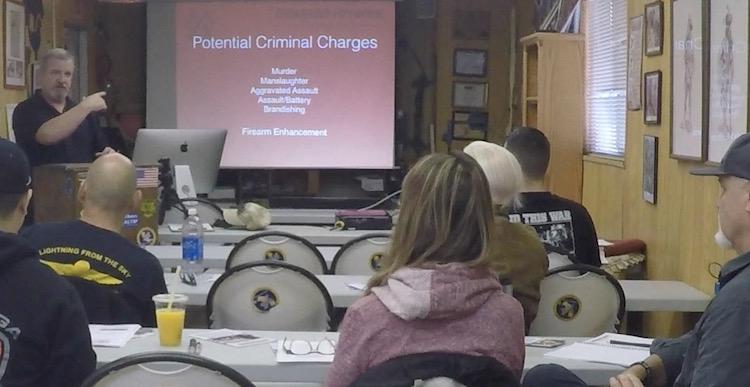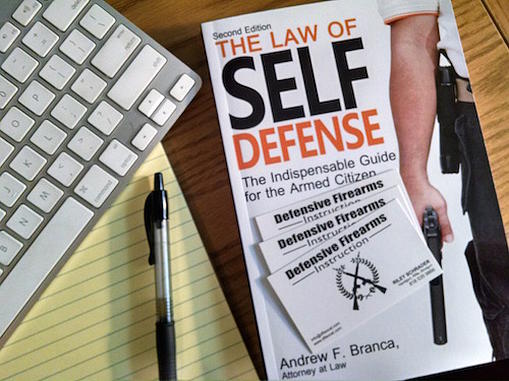Depending upon which trainer, what range, or the particular gun related video that you may be watching, there will sometimes be more “rules” than these, but there should never be less. Especially at sporting events involving firearms usage, there will likely be many restrictions that are counterintuitive to “practical” usage. This is as it should be. At open enrollment events, the proficiency of those in attendance cannot be underestimated, regardless of “profession”.
The following is aimed primarily at the serious firearms practitioner who recognizes that there are no reset buttons regarding defensive firearms handling and usage. You must handle your firearms properly, all the time. These rules, when fully committed, and ingrained, into your default behavior when you handle any firearm, will preclude virtually all negligent discharges and if you should have a legitimate accidental discharge, the consequences will be minimal.
These rules are equally as, if not more, important in “tactical” settings whether or not you are a police officer serving a high-risk warrant, warfighter moving to contact, or homeowner investigating the sound of broken glass at your residence. You must not shoot things, or people, that you don’t intend to shoot.
The firearm you are handling is a tool. It will act only according to input onto the operating and control mechanisms with which it has been designed. This means ANY input on the trigger or other mechanisms, human or otherwise, will cause that part to operate in the manner in which it was designed. Control the environment of that tool, and the opportunities for anything to interface with it, whether it is in storage in your safe or on your person in a ready condition. Foolish and careless handling or behavior is the mark of an idiot that is soon to become a tragic injury or death.
The rules are purposefully redundant and overlapping. To negligently discharge a firearm, you must violate two or more of these rules. Don’t be that person.
The Four Cardinal Rules of Firearms Safety-EXPANDED
Treat all guns as if they are ALWAYS loaded, all the time.
- This rule, all by itself, will eliminate any situation-specific or variable decision making that may serve to confuse you. In your mind, you will only handle firearms in one manner whenever you handle them at all. No confusion, no uncertainty with variables, i.e., “I handle guns this way when “at the range”, or this other way when I’m “tactical”, or yet another way when I’m “just at the gun store”.
- Guns are supposed to be loaded.
- From a defensive perspective, they are no good to you unless they are loaded.
- Just like your car is no good to you unless it is fueled. You expect the car to be fueled, and otherwise functional, to some level or other because that is the normal condition of a functioning car. When you activate the ignition system, you reasonably expect your car to start.
- When you activate the fire control system on a firearm, it is reasonable to expect it to function as designed.
- A Negligent Discharge (ND) refers to anytime a firearm discharges through negligent handling. It is always a result of mishandling the firearm on the part of the person doing the handling.
- An “Accidental Discharge” (AD) pertains to some sort of mechanical breakage or system failure that occurs internally, that the shooter had little or no control over, and causes the firearm to function without direct input to the trigger mechanism. Accidental discharges are exceedingly rare.
- Almost all unintentional discharges are preventable by proper gunhandling.
- If you think a firearm is unloaded, and you are compelled to handle it, the first thing you should presume is…it is loaded.
- If you don’t know the proper clearing procedures for that firearm, leave it alone unless there is some overriding reason to do otherwise.
- While following ALL of the 4 Cardinal Rules of Firearms Safety, perform Unload and Clear Procedures.
- No one knowledgeable in firearms handling will be offended by you double checking a firearm, at any time.
- This will, in fact, demonstrate your emphasis upon safe handling procedures
- Anyone who objects to your emphasis upon safety is displaying their disregard for proper gun handling, and by logical extension, everyone else’s safety in the area. They are quite possibly dangerous due to this lack of concern. Do not allow their recklessness to affect your safety protocols. Conduct yourself accordingly.


